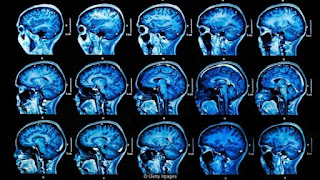Some Risk Factors for Late-Onset Epilepsy May Be Modifiable
Dementia is a term used to describe symptoms that arise from
damage to the brain caused by different diseases, such as Alzheimer’s disease.
One of the types is frontotemporal dementia - but what is this, and are you at
risk of it developing?
Diagnosis of epilepsy occurs most often in the young and the
over 60s and because life expectancy is increasing there are more and more
epilepsy diagnoses in the older population.
It has been known for a while that the risk of late onset epilepsy is
associated with stroke and dementia, but a new study suggests that there may be
a genetic risk as well as life-style factors such as diabetes, smoking and
physical activity. “People with dementia
are at higher risk of epilepsy, and people with epilepsy are at higher risk of
developing dementia” says Andres Kenner, MD, of the Miller School of Medicine
at the University of Miami, who was not involved in the research “And now,
among the risk factors for late-onset epilepsy is the presence of the APOE
allele, which is a risk factor for Alzheimer’s dementia, and which may explain
the bi-directional relationship between dementia and epilepsy.” While more
research needs to be done there are clear implications in this research for
modifying some of the life-style risk factors and so decreasing the chance of
developing epilepsy in later life.




Comments
Post a Comment